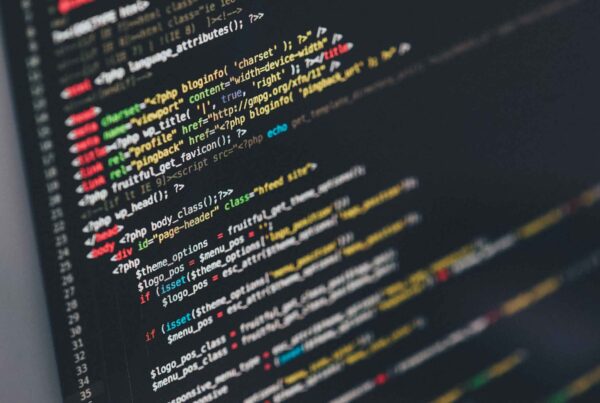In the ever-evolving landscape of web development, staying at the forefront of technology and innovation is essential. Laravel, a powerful and elegant PHP framework, has revolutionized the way developers create web applications. It combines simplicity, flexibility, and robust features to streamline the development process. In this article, we will explore the world of Laravel, its significance, and why it’s a go-to choice for modern web development.
Introduction to Laravel
Laravel is an open-source PHP web application framework known for its elegant syntax and powerful features. Taylor Otwell created Laravel in 2011, and since then, it has gained immense popularity within the web development community. The framework offers a clean and expressive API over the raw PHP syntax, making it a preferred choice for developers aiming to build efficient and maintainable web applications.
Significance of Laravel in Modern Web Development
1. Eloquent ORM (Object-Relational Mapping)
Laravel’s Eloquent ORM is a standout feature. It provides a beautiful, simple ActiveRecord implementation for working with your database. Developers can define database tables and relationships using expressive code, rather than writing raw SQL queries. This makes data manipulation and retrieval a breeze.
2. Elegant Syntax and Routing
Laravel’s elegant syntax and routing make it simple to define application routes. Clean and expressive code is the backbone of Laravel, and this is reflected in the way routes and controllers are defined. It’s perfect for developers who appreciate an organized and logical structure.
3. Blade Templating Engine
Blade, Laravel’s templating engine, offers a powerful and intuitive way to create dynamic web pages. It allows developers to write front-end code that is clean and easy to understand. Blade also supports template inheritance, which promotes the reuse of templates across a web application.
4. Modular Packaging System
Laravel comes with a robust packaging system that simplifies the integration of third-party libraries. This means developers can easily add functionalities such as user authentication, image handling, and more, saving time and effort in development.
5. Authentication and Authorization
Laravel provides a built-in authentication system that is easy to configure. It includes ready-to-use controllers, views, and routes for user registration and login. Additionally, Laravel’s authorization system allows developers to define access control to certain parts of the application with ease.
6. Artisan Console
Laravel includes Artisan, a command-line tool for performing tasks like database migrations, model creation, and much more. It simplifies repetitive and complex tasks, enhancing the developer’s workflow.
7. Community Support and Resources
Laravel boasts a strong and active community. This means there are numerous resources, packages, and tutorials available for developers. If you encounter an issue or need guidance, chances are you’ll find a solution within the Laravel community.
8. Robust Security
Security is a top priority in web development, and Laravel addresses this with features like prepared SQL statements, encryption, and user authentication. It is equipped to protect your application from common security vulnerabilities.
Laravel’s Ecosystem
The Laravel ecosystem is rich and diverse, offering a wide range of tools and packages for various purposes. Here are some key components of the Laravel ecosystem:
- Lumen: A micro-framework by Laravel, Lumen is designed for building blazing fast microservices and APIs.
- Forge: Laravel Forge is a robust tool for server provisioning and deployment, simplifying the process of setting up and managing servers for Laravel applications.
- Envoyer: Envoyer is an easy-to-use deployment tool that allows for zero-downtime PHP application deployments.
- Spark: Laravel Spark is a powerful SaaS application scaffold that simplifies building and maintaining subscription billing platforms and software as a service (SaaS) applications.
Laravel in Action: Real-World Applications
Laravel’s versatility and power are demonstrated by its use in a variety of real-world applications:
1. Content Management Systems (CMS): Laravel is the backbone of popular CMS platforms, including October CMS and Statamic. It provides a solid foundation for managing and delivering content.
2. E-commerce Platforms: E-commerce websites often require complex functionalities. Laravel’s modular approach makes it a great choice for building robust e-commerce platforms. The Bagisto and Aimeos e-commerce packages are good examples.
3. Educational Platforms: Laravel is a common choice for building learning management systems (LMS) and online education platforms. Its robust features and elegant syntax make it suitable for creating interactive and engaging educational tools.
4. Social Networking: Social networking platforms like Chirp, a Twitter-like microblogging platform, are built on Laravel, demonstrating its capability to handle complex interactions and real-time features.
5. Healthcare: In the healthcare industry, where data security and privacy are paramount, Laravel is used to build secure and compliant applications that handle patient data and health records.
6. Finance and Fintech: Laravel is also leveraged in the finance sector to create secure and efficient financial applications and platforms.
Conclusion
Laravel has proven to be a game-changer in modern web development. Its elegant syntax, powerful features, and active community have made it the framework of choice for developers looking to create robust, efficient, and maintainable web applications. Whether you’re building a CMS, an e-commerce platform, or a social networking site, Laravel provides the tools and flexibility you need to bring your vision to life. In an ever-evolving digital landscape, Laravel is a constant source of innovation and elegance, ensuring that your web development projects are up to date and efficient.








